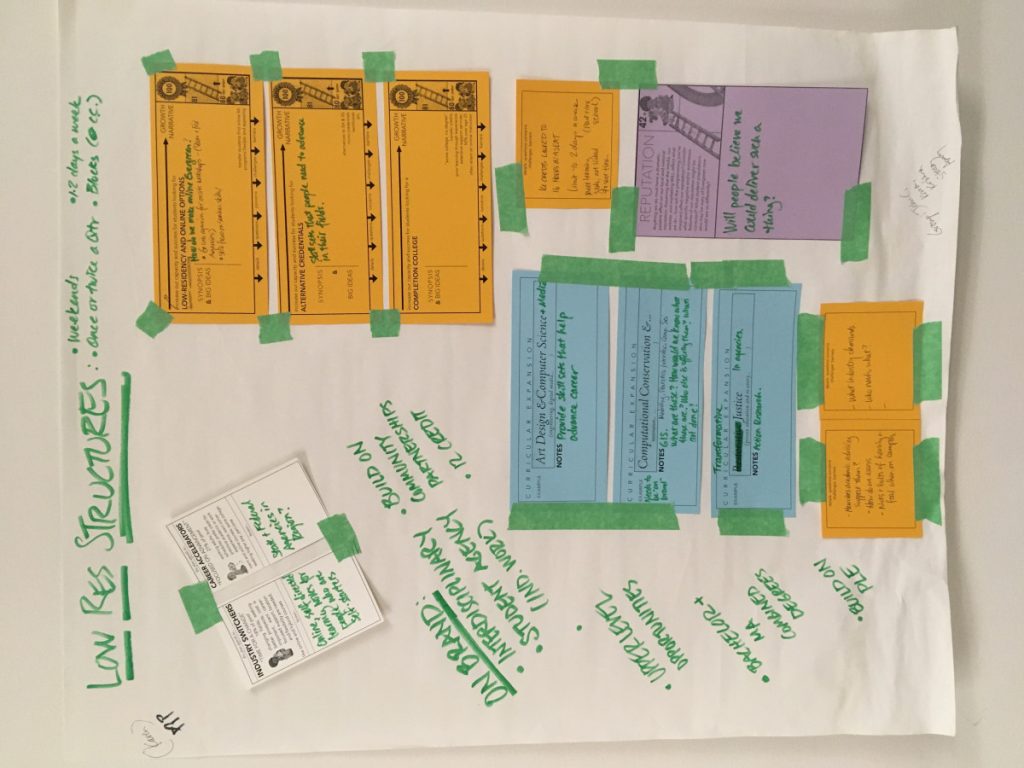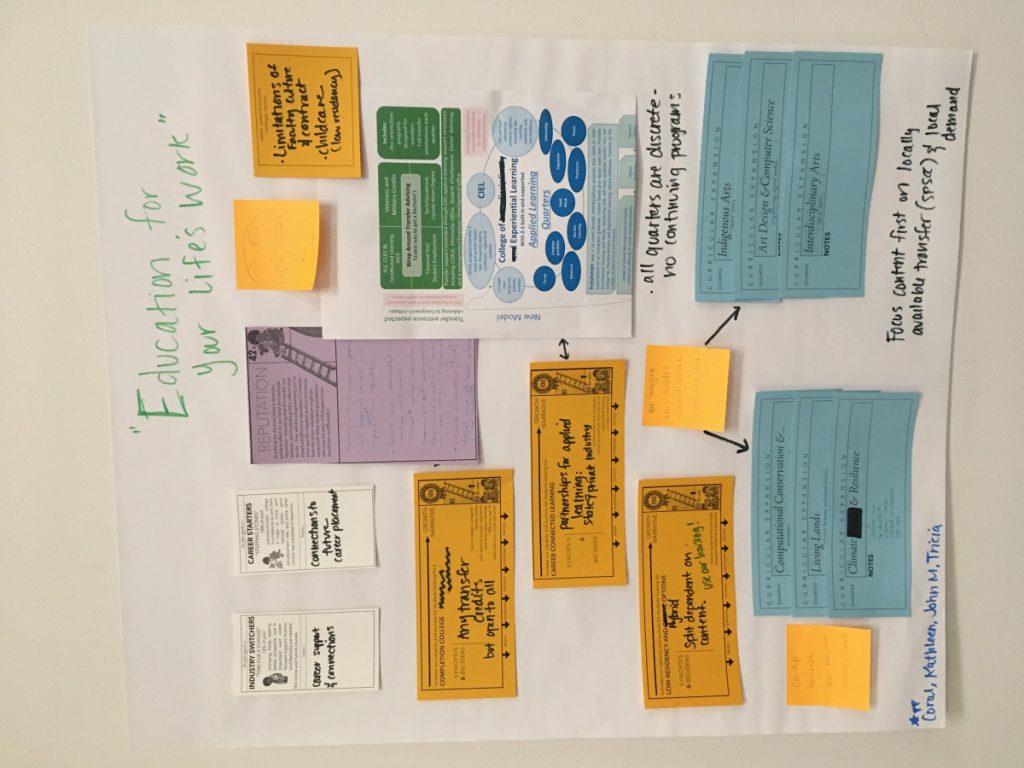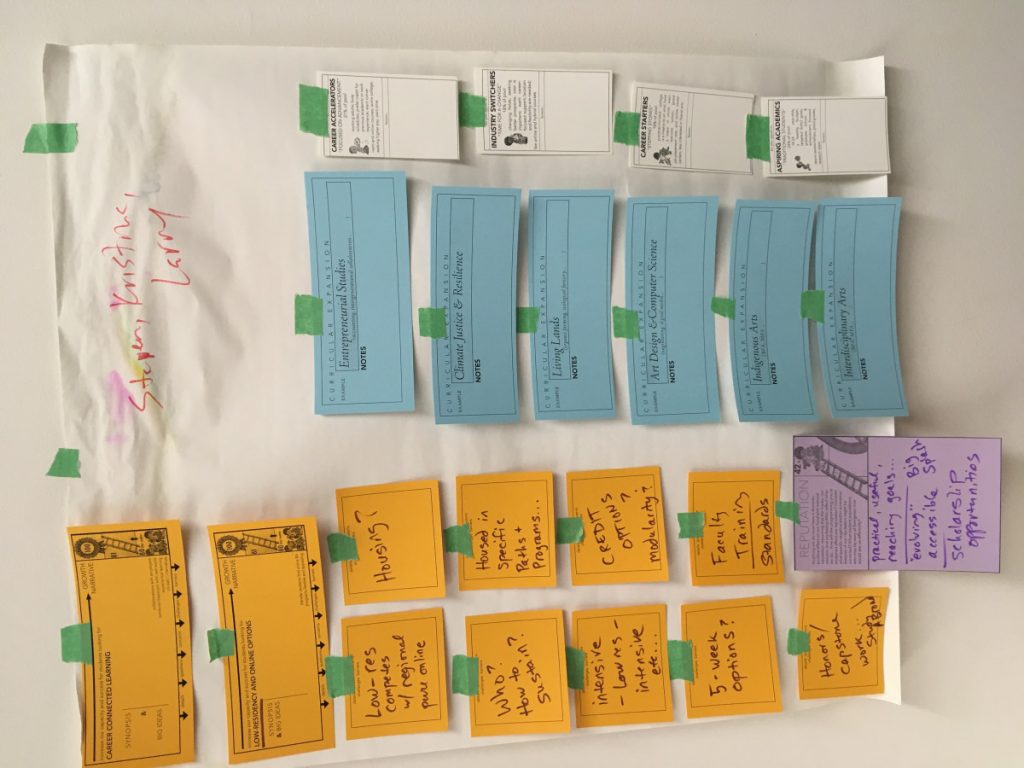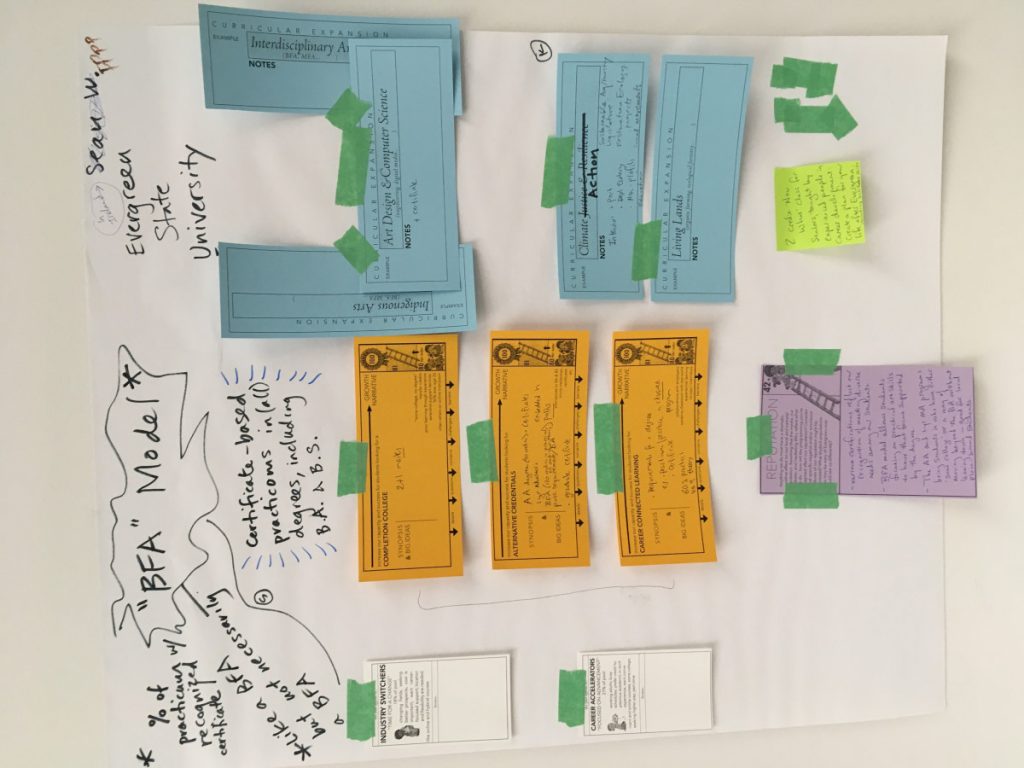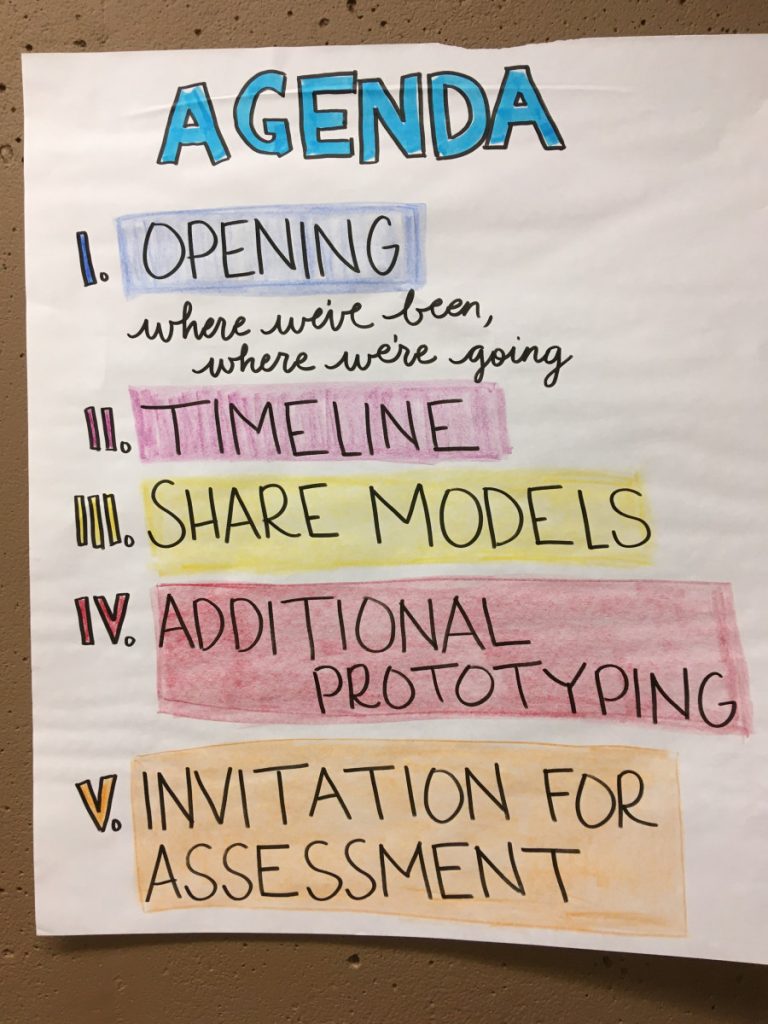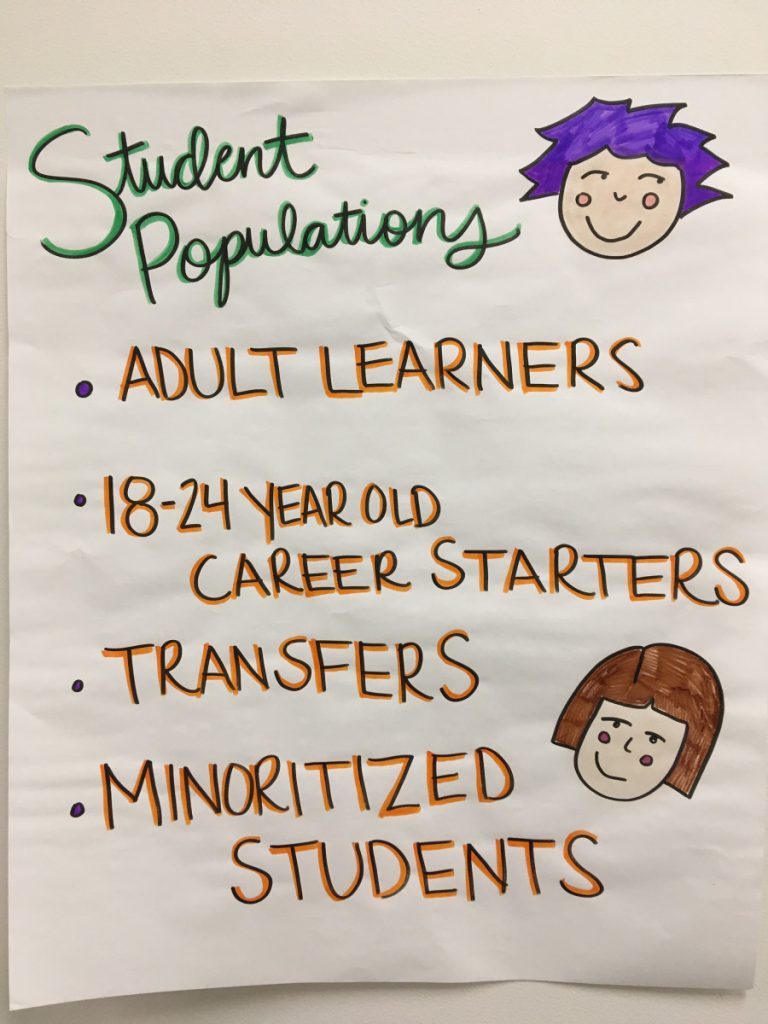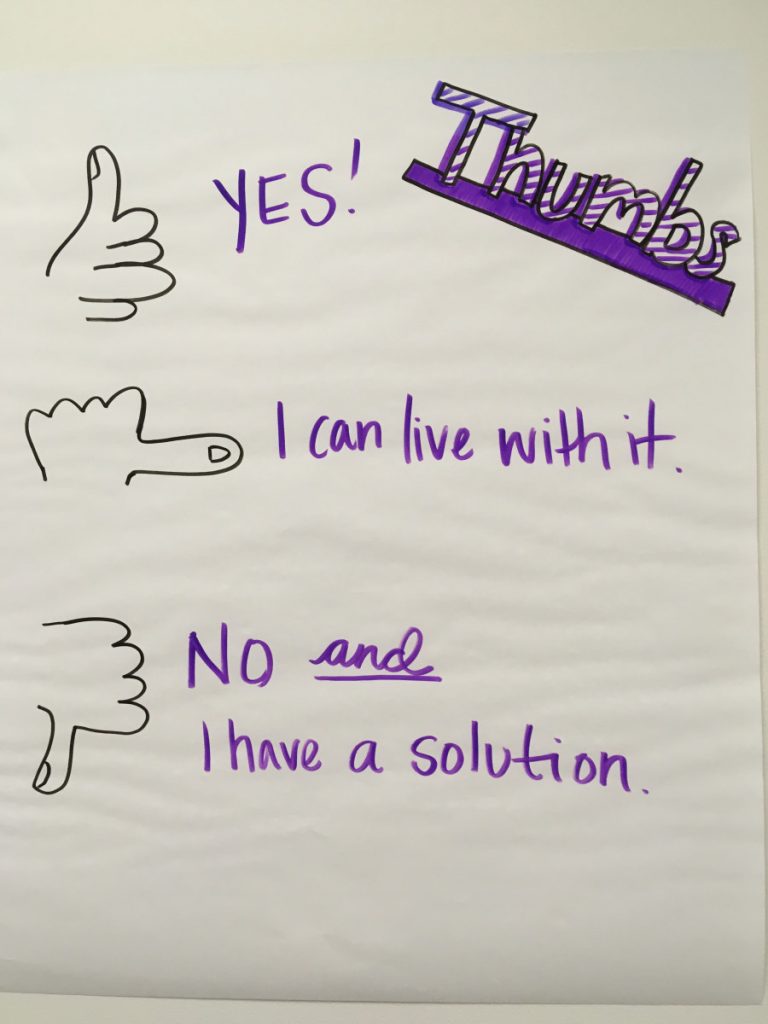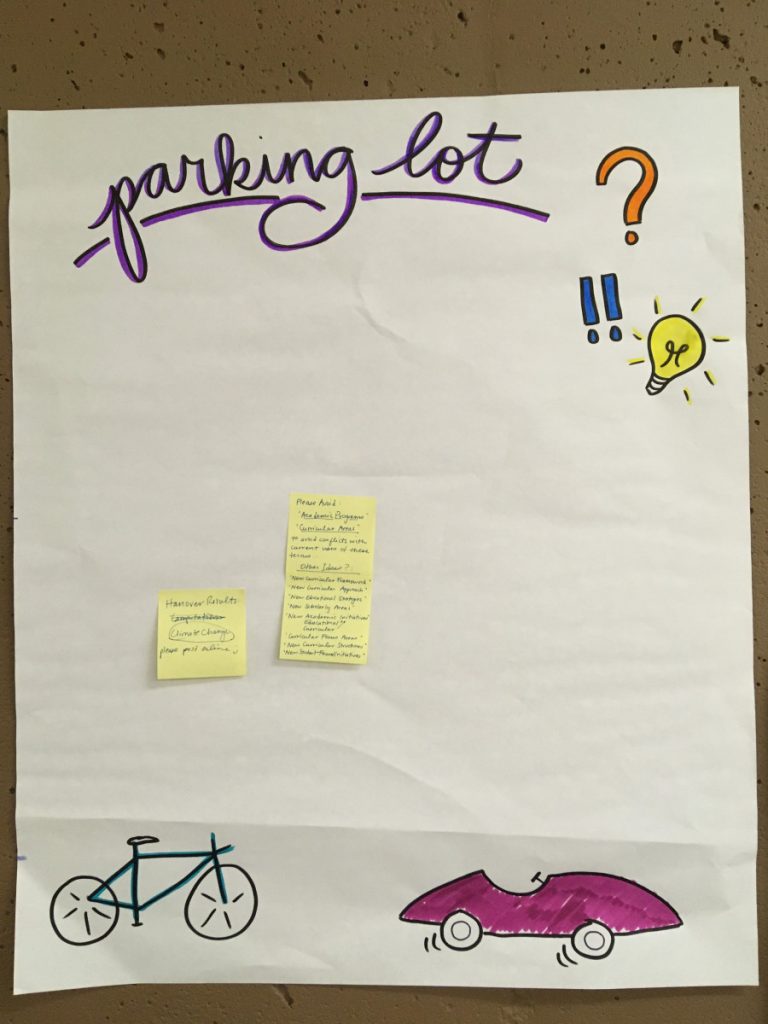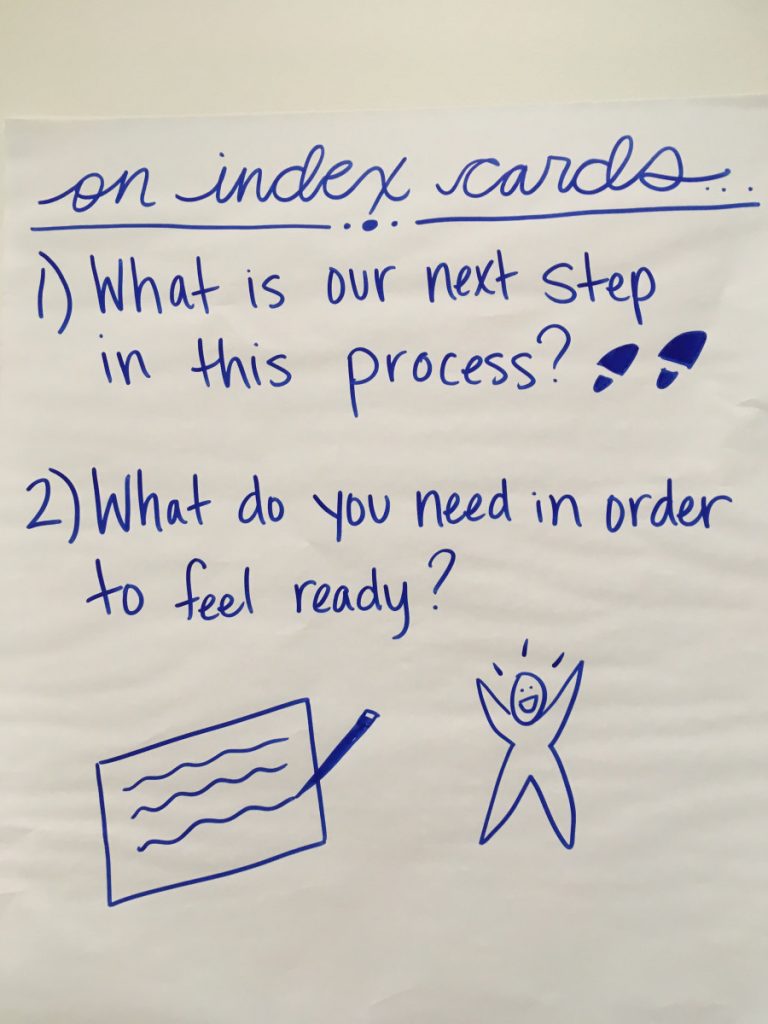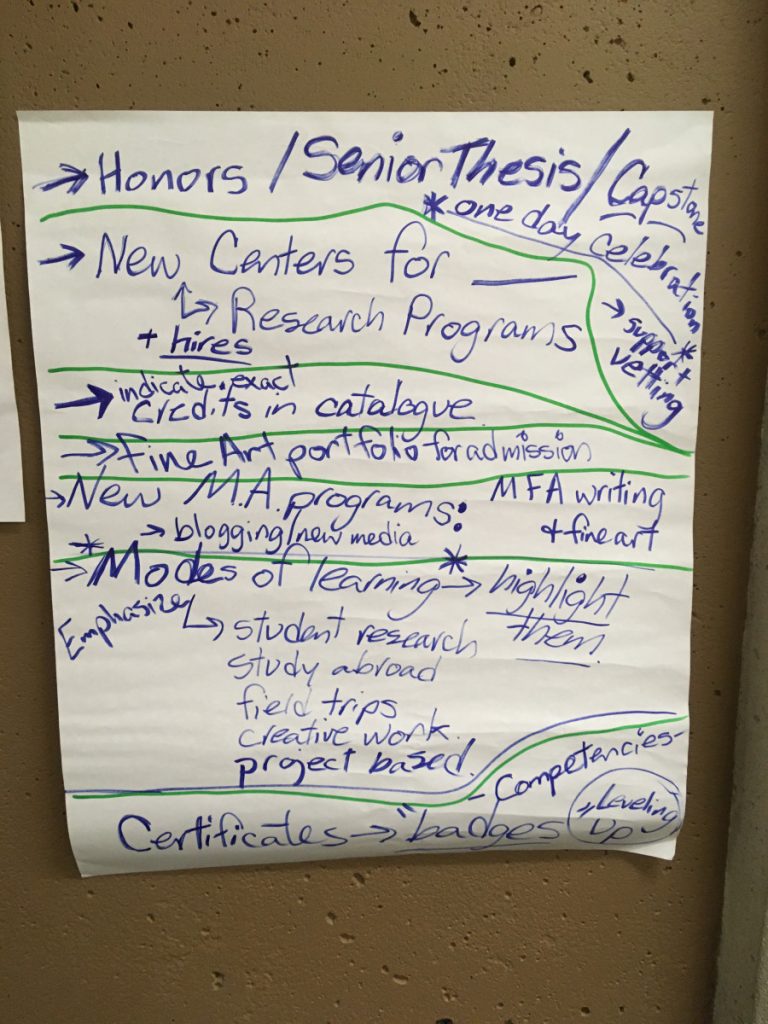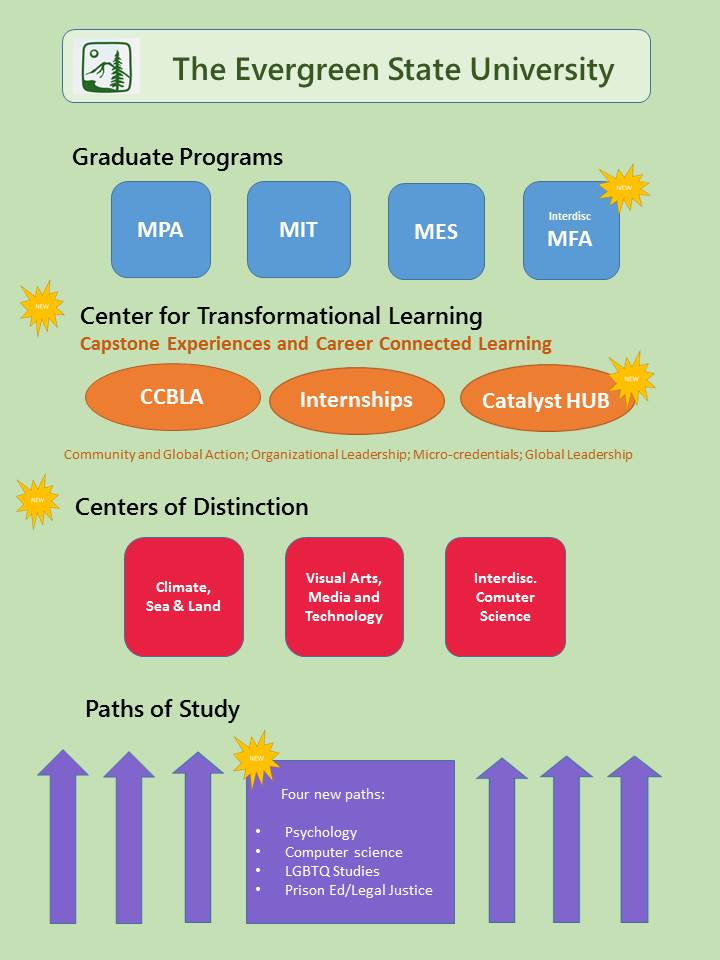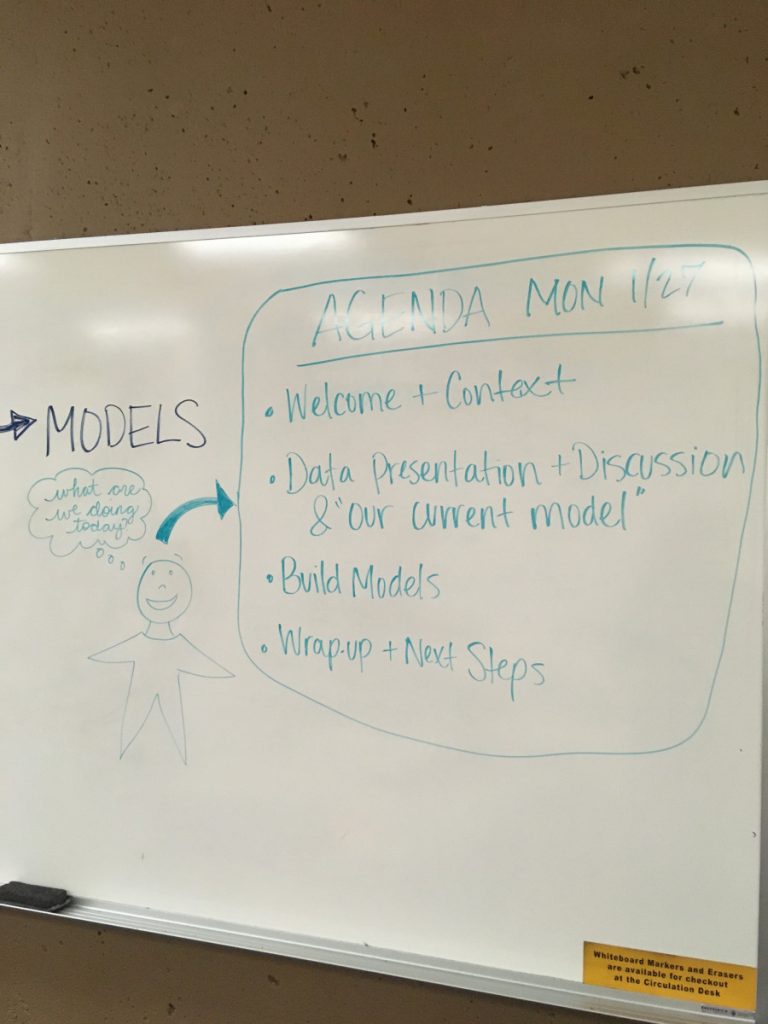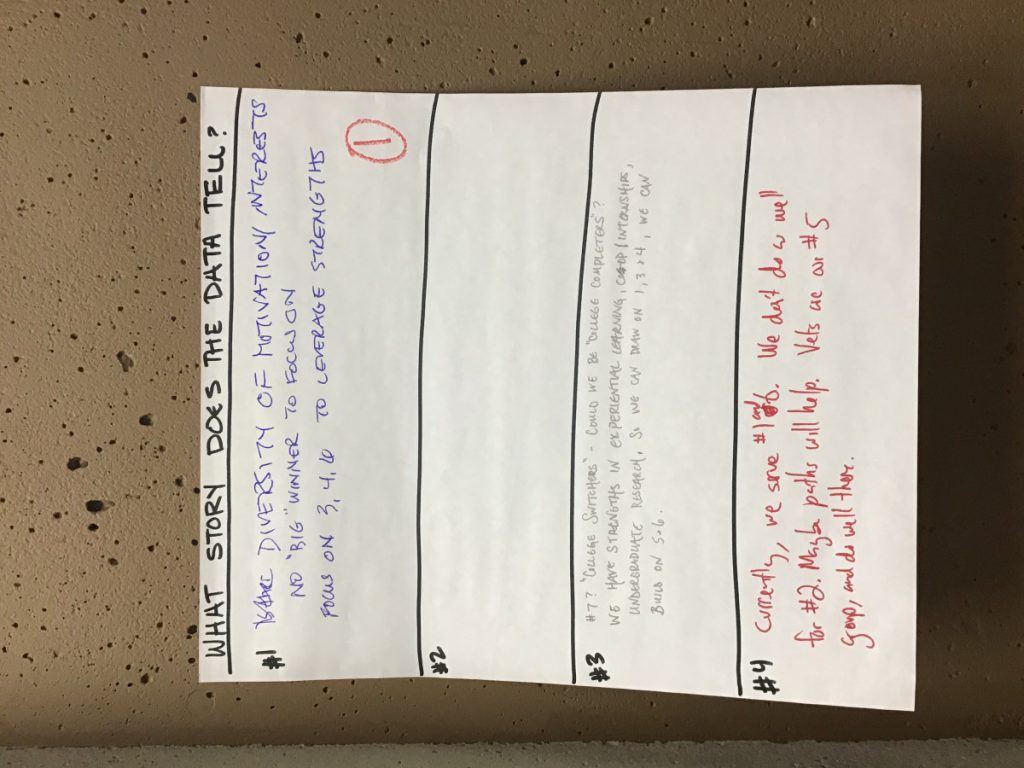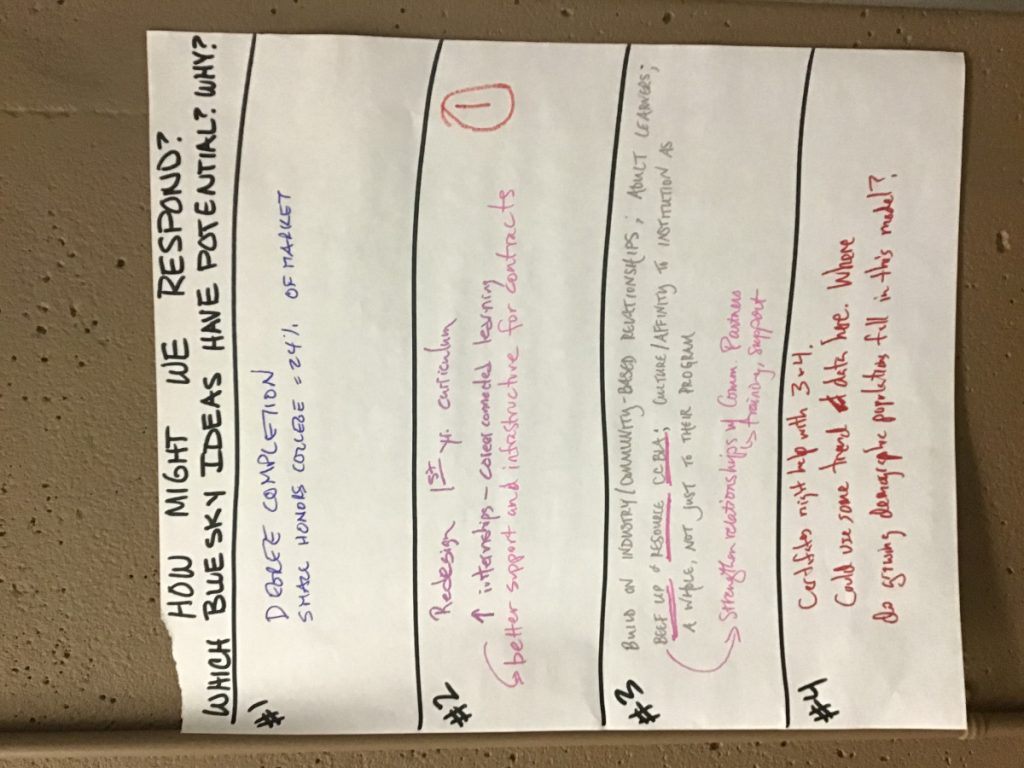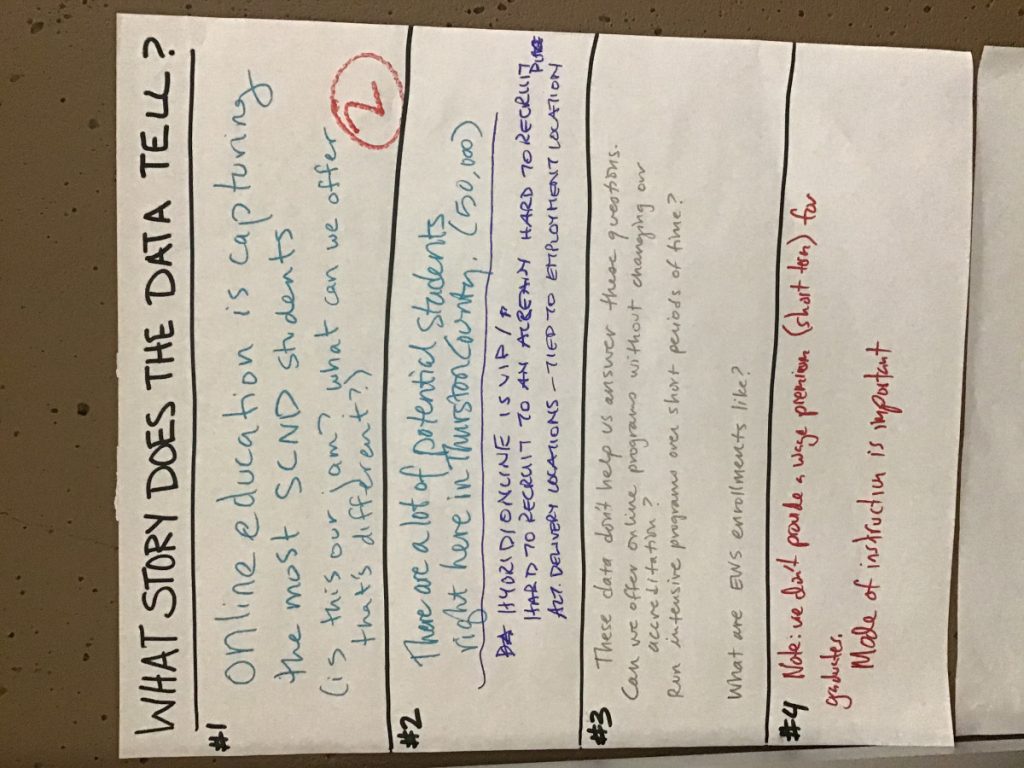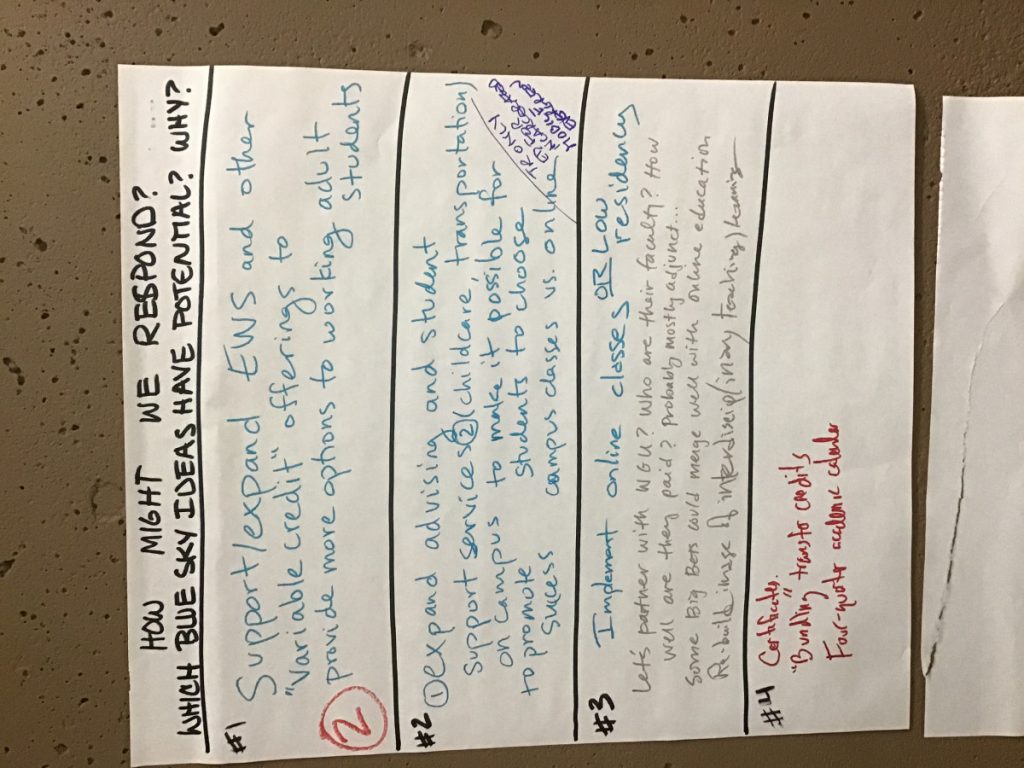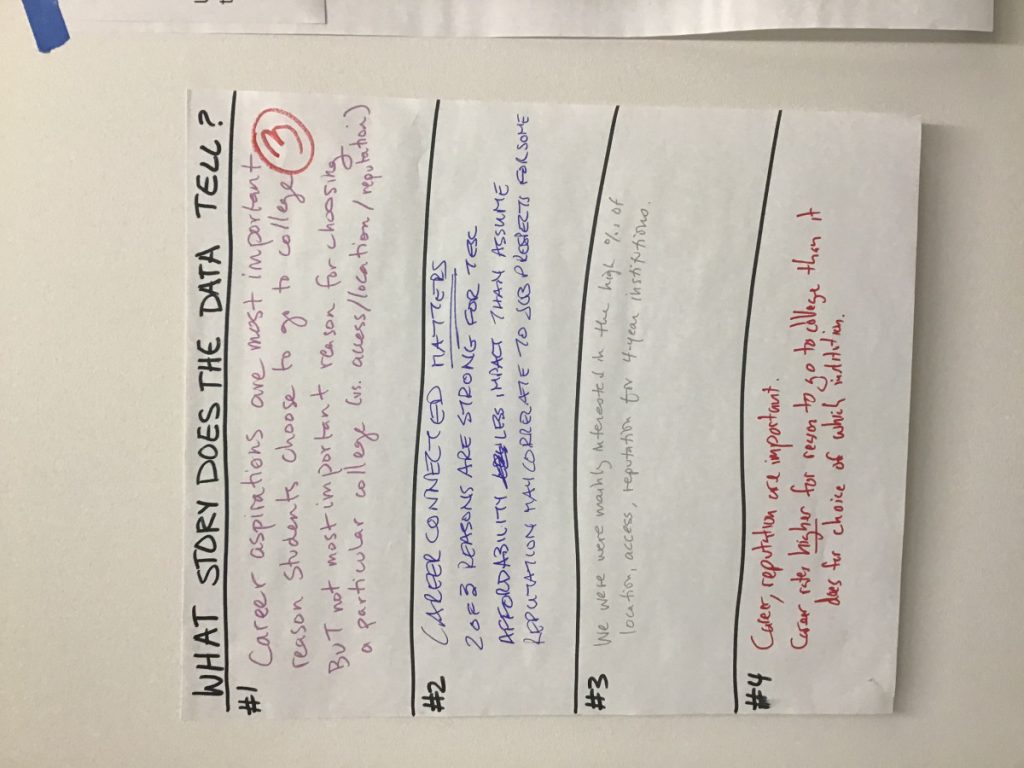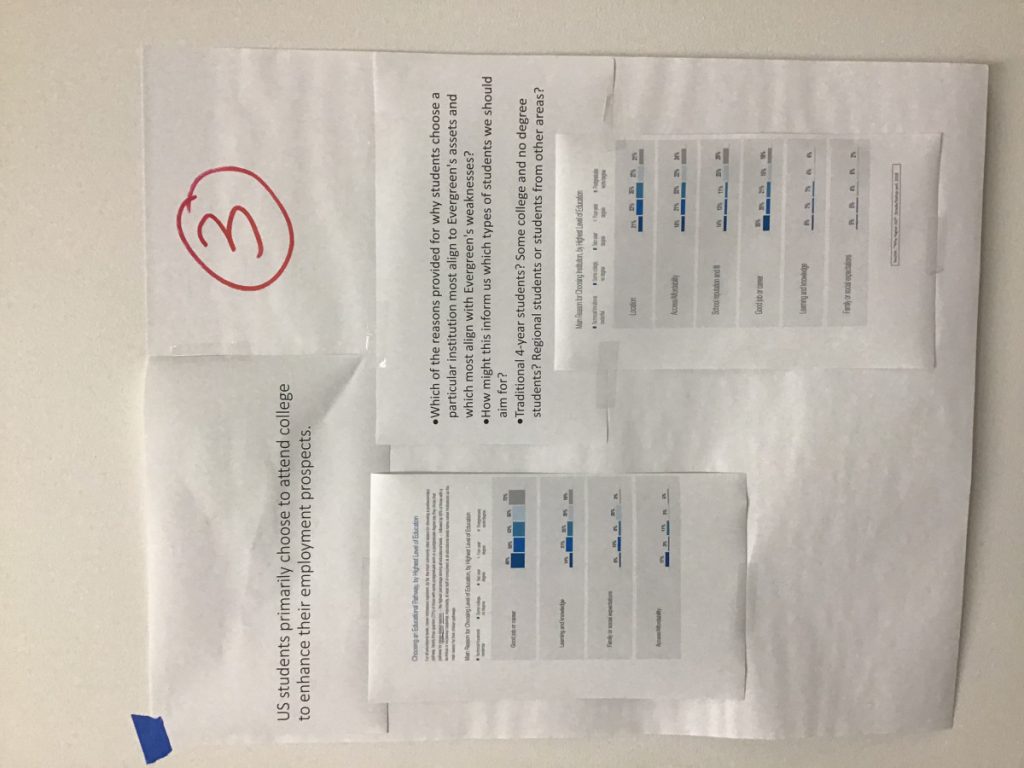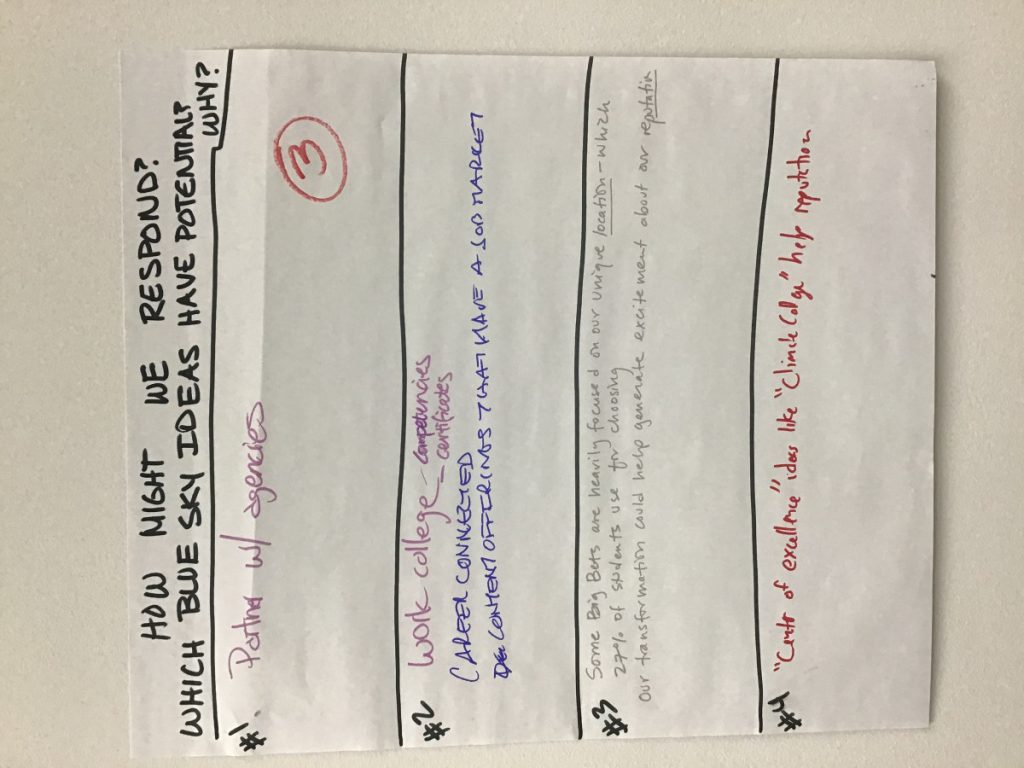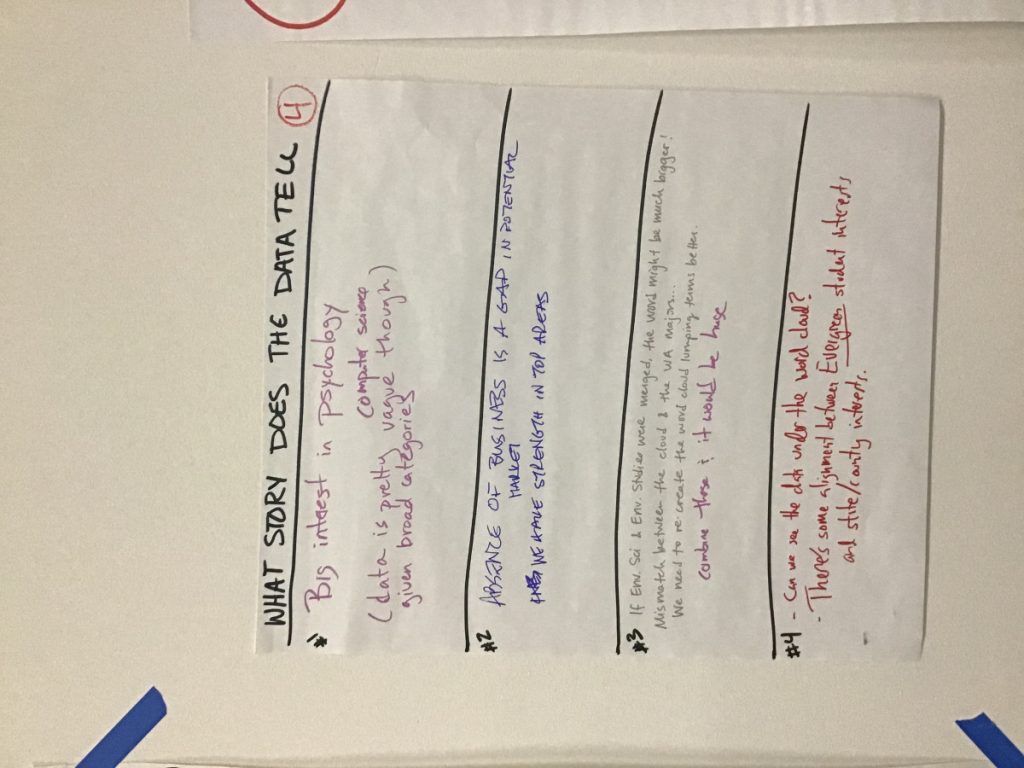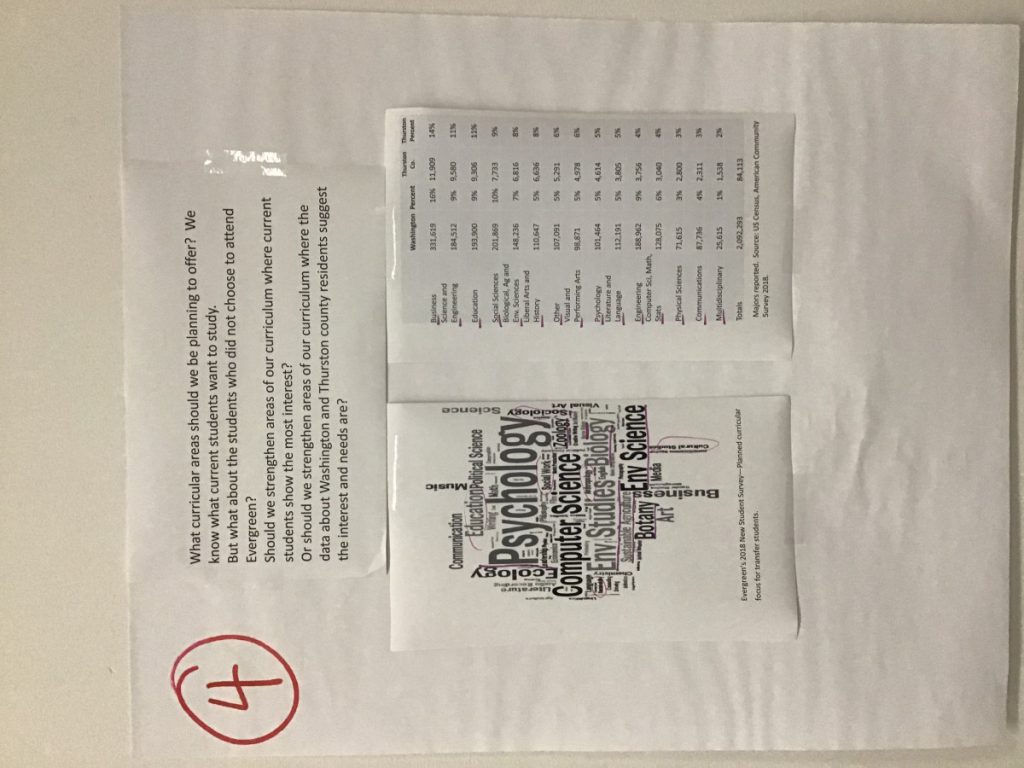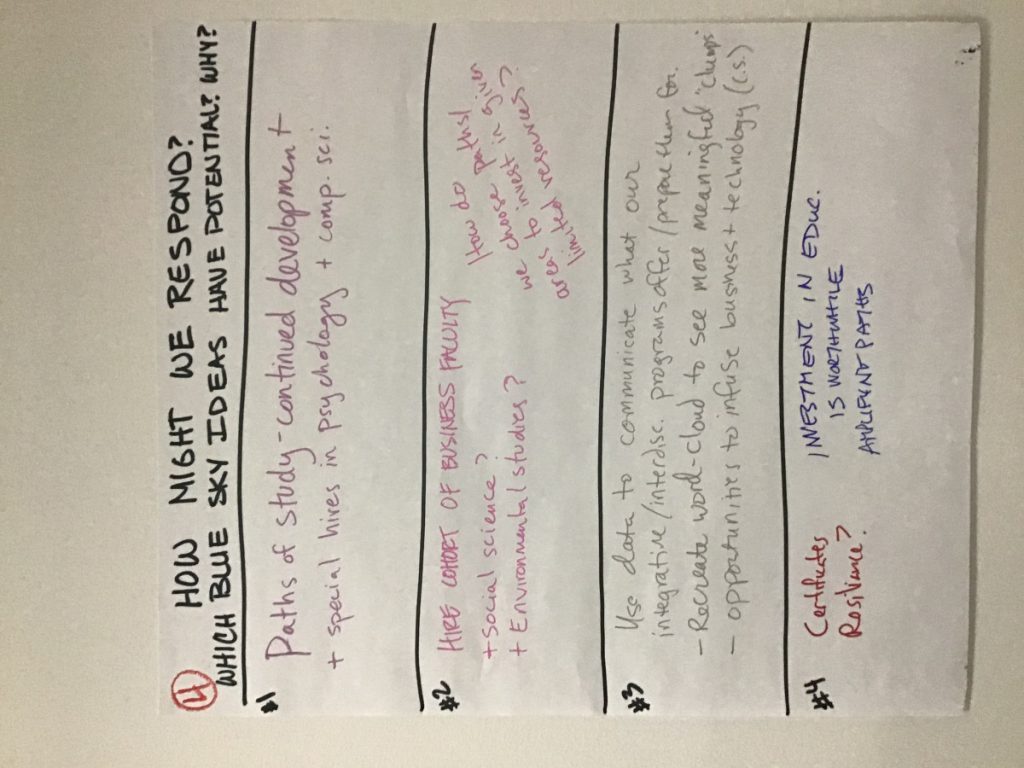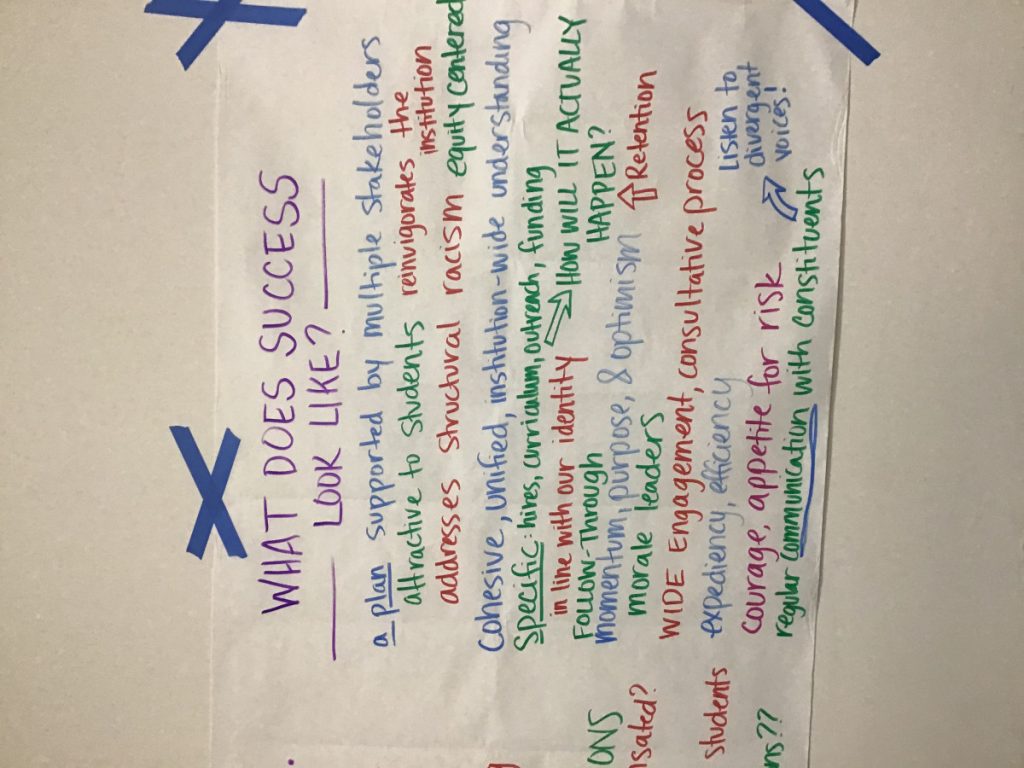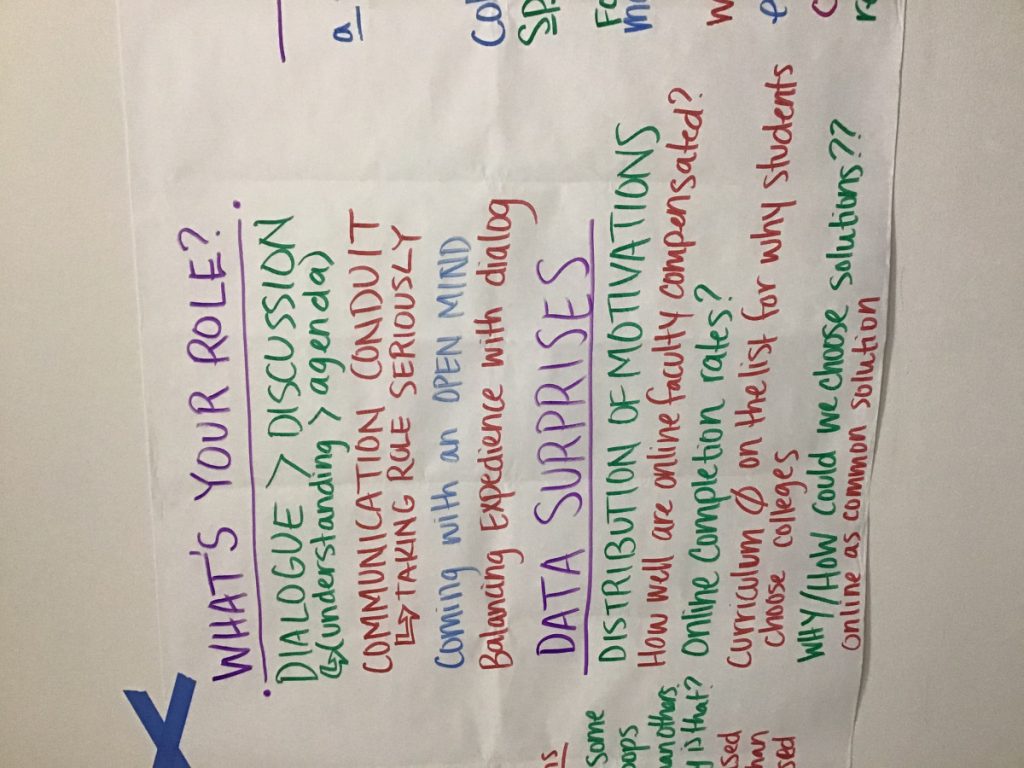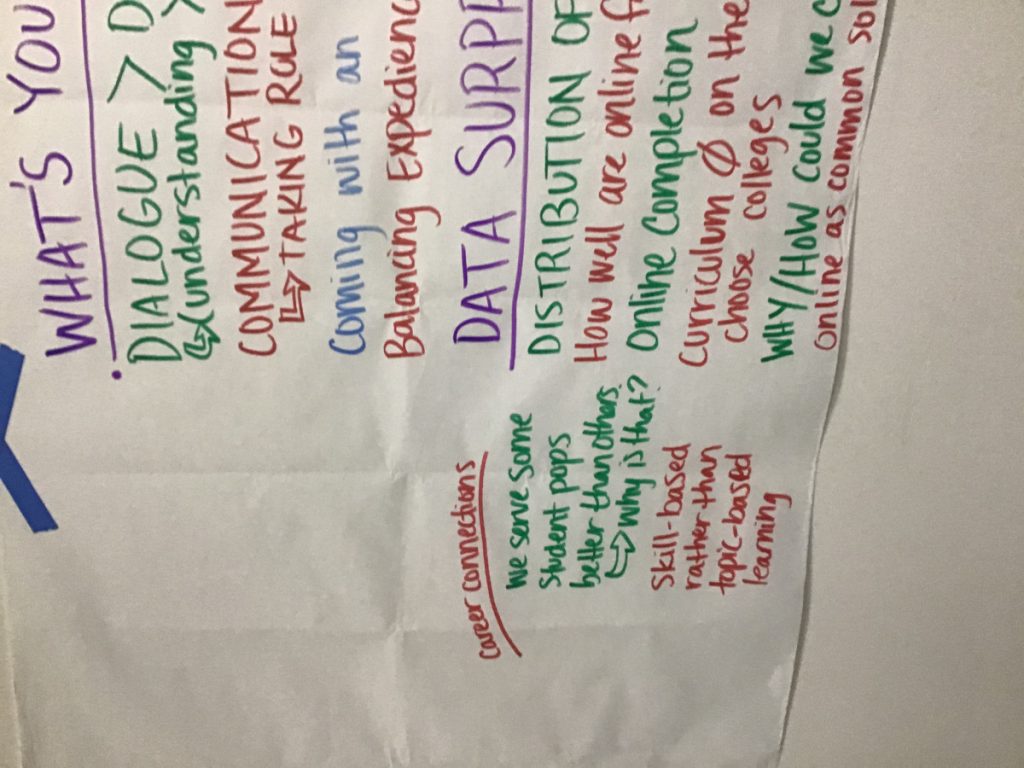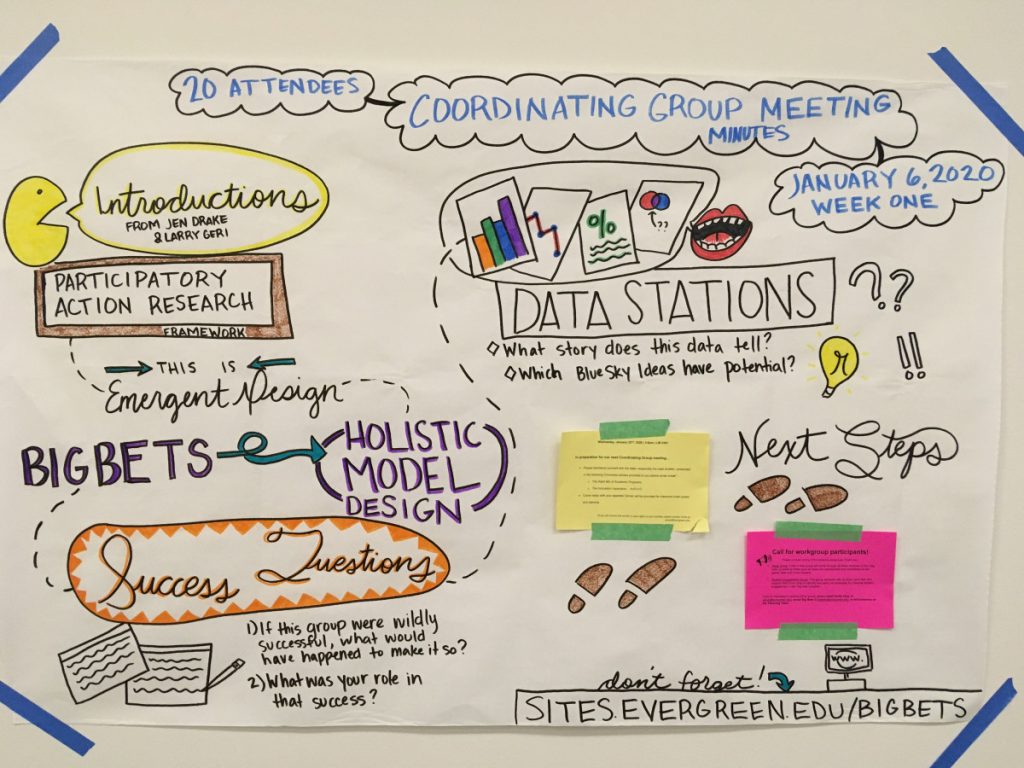The Coordinating Group convened once again on Monday, April 27 (week five); 22 people were in attendance.
In the first hour (of our two hour meeting), we reviewed the elements of a model (below) and, as a group, debriefed the week 4 faculty meeting. For access to the group notes that were generated from that debrief, click here (it will take you to a shared Word document in OneDrive).
In the second hour, we reviewed data from Hanover Research, from Evergreen’s Institutional Research, and from the Blue Sky data from Fall and Winter quarters to discuss potential curricular clusters of note (see below post for presentation of data). We then broke into small groups for discussion around curricular areas.
The Coordinating Group will convene again on Wednesday, May 13th to continue the work of reviewing and incorporating feedback into the draft model we have. Stay tuned!
Hopes for upcoming faculty meetings where Big Bets are discussed:
-
- Week 6 – focus on curriculum
- Week 8 – provide a comprehensive updated model
- Week 9 – possible added faculty meeting on 5/27 for further deliberation on the model (if week 8 suggests this is wise)
- Week 10 – final deliberation on model + advisory vote
Elements of a Model
- Evergreen State University
- Evergreen College + Canopy College + Graduate and Professional School of Applied Learning [Note: these names are placeholders and are not official; we have already received thoughtful suggestions and feedback about the names]
- Hybrid Learning; Low res
- C1: Concentration
- C2: Certificate
- C3: Capstone
- Wraparound Support
- New Transcript


